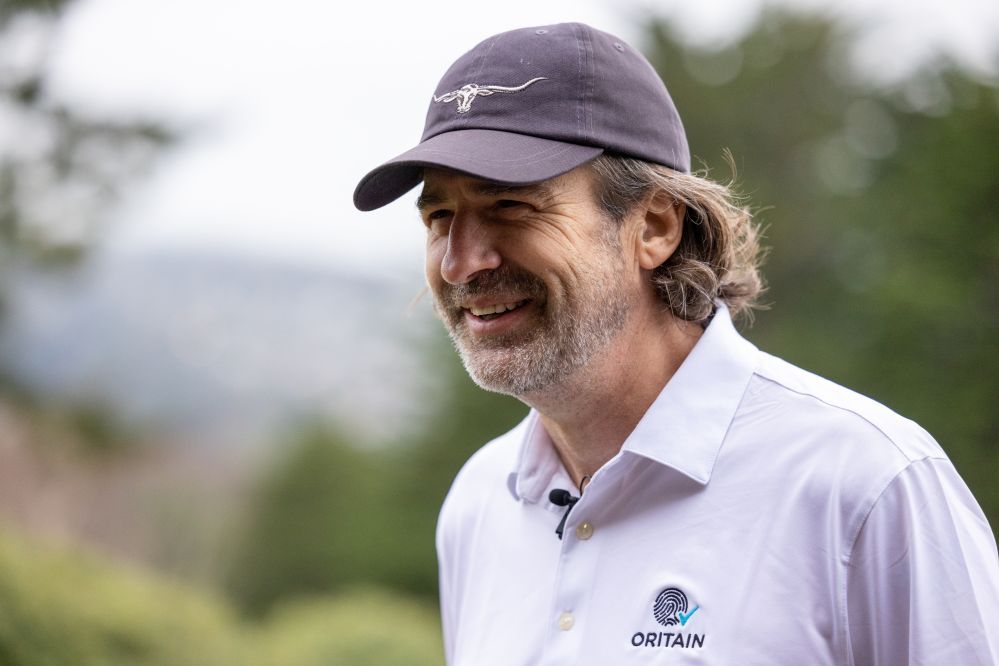- Oritain — a New Zealand-based firm deploying forensics to verify the origin of everything from cocoa to coffee — has raised a $57 million series C round.
- Led by Highland Europe and supported by Long Ridge, the round takes Oritain’s cumulative funding to $70 million.
- The funding will help Oritain expand its geographical reach and deploy its technology in a wider range of materials, said the firm, which works with 25 products and 100+ clients from Nestlé (Nescafé Brazil) and the a2 Milk Co to Lacoste and Sanford Fisheries, with a customer retention rate of 95%.

Crime Scene Investigation
Food and clothing brands need to be able to trace the origins of their raw materials for quality assurance (Does this coffee really come from Brazil? Is this 100% mānuka honey?) as well as legal reasons (Did commodity X come from a region where slave labor is used?).
As a result, large companies are now deploying ever more sophisticated approaches from ‘biological barcodes’ to blockchain. New Zealand-based Oritain, however, uses techniques you’re more likely to see on an episode of CSI: Crime Scene Investigation.
Founded in 2008 by Dr. Helen Darling and Professor Russell Frew at the University of Otago, Oritain assesses ratios of stable isotopes and trace elements such as zinc, iron, and potassium in food crops such as coffee and cocoa that uniquely identify their origin.
The technology, which builds on techniques developed in forensic science, is based on the premise that environmental conditions leave imprints — in everything from cocoa to human hair — that provide important clues as to their origins or movements.
In the case of human hair, for example, isotope analysis along different lengths of the hair on murder victims can reveal where they spent time in the months before their death.
In the case of crops, the environment in which plants such as coffee, cotton or cocoa are grown (soil composition, climate, altitude, precipitation etc), also impart unique attributes that can ‘give away’ their origins.
Oritain then uses that data to create a ‘fingerprint’ against which future samples can be tested to determine if they are sourced from the same place (Is my coffee really from Brazil? Is my wine really from Argentina?)
Approach stands up in court
The approach stands up in court, notes the company, which provided AgFunder News (AFN) with several examples of where Oritain’s data has been used in court cases covering everything from adulterated mānuka honey to the use of contaminants such as monofluoroactetate in the food chain.
“We are all products of our environment,” explained CEO Grant Cochrane. “In the case of food, there are a lot of different variables, but we’re measuring things that create an indelible fingerprint.”
Regulatory pressures
“In the early days,” said Cochrane, “people said we were a solution looking for a problem, plus there was also a lot of what I’d call plausible deniability, whereby people didn’t want to look so they didn’t have to do anything. But that’s changed a lot.
Today, he said, “For commodities such as coffee, cocoa and soy, companies are under increasing pressure from customers, investors and regulators to determine exactly where their products have come from.”
New EU regulations around deforestation are also generating interest in technology that can determine the origins of commodities with “murky” supply chains such as soy and palm oil where product might be mixed multiple times before it reaches its final destination, he added.
“When COVID-19 hit, we had 25 staff; today we have 180, so that gives you some idea of the growth we’ve experienced in the last three years. Often producers and growers don’t have the funds for this kind of work, but brands want to protect their integrity.
“Our revenues have grown at a compound annual growth rate of 90% over the last seven years, so we’ve effectively doubled year on year for the last seven years.”
Economic adulteration
In cases where an unscrupulous trader might blend of coffee from two different regions (one far cheaper than the other), Oritain’s fingerprinting technology will also pick this up, as the overall profile of the adulterated sample will not match the target fingerprint, he said.
“If blending has occurred, it will move the fingerprint [of the adulterated sample] away from the genuine fingerprint, so we would detect it in that case, although we couldn’t necessarily say what it was adulterated with.”
He added: “There’s a lot of economically motivated fraud. In infant formula, we’ve seen product exported to China where the cans have been reused and the products are counterfeit. We’ve also detected wine that is meant to be from one country has been blended with wine from another. We’ve seen in red meat in the UK where the meat has not been true to the origin.”
How stable are Oritain’s fingerprints over time?
Asked how stable (and therefore reliable) Oritain’s fingerprints are over time, he said: “Some fingerprints are very very stable, while others are susceptible to change, so we do ongoing sampling and statistical modeling.”
Given that each product category is unique, working on a new crop and region can take time, he conceded. But once the initial heavy lifting is done, product sampling and testing can be set up rapidly.
“For a new product it might take us up to a year to get operational, but once the product is operational, we can be very, very quick [to implement testing for clients]. But that’s what a lot of the new funding will help us do, to diversify into more and more products.”




